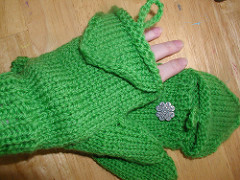The very earliest soap recipe can be traced to the reign of Nabonidus in 556-539 BCE, where ashes, cypress oil and sesame oil were used. Ancient Egyptians were also regular bathers, and combined animal and vegetable oils with alkaline salts to create a soap-like material. Today handmade soaps are made with many of the same ingredients. They are a great alternative to traditional mass-produced soaps, and are free of chemicals.
Chemicals/Hazards of Conventional Soaps
More than 5,000 different chemical fragrances are put into soaps and cleaning products that are used on a daily basis. This is a far cry from the basic make-up of early soaps. Since fragrance formulas are regarded as trade secrets, manufacturers do not need to identify the chemical makeup of what is going into their soaps and body washes. Many groups such as the Natural Resources Defense Council are fighting to have harmful substances banned from personal care products, and they claim that the Food and Drug Administration fails to regulate chemicals such as triclosan and triclocarban, which are suspected endocrine disruptors linked to reproductive and developmental harm in laboratory studies.
Some soap brands use inferior-quality chemicals that may actually worsen the condition of users skin. Chemicals like Laureth Sulphate (SLES), Sodium Lauryl Sulphate (SLS) and parabens, or chemical preservatives, are commonly used in the mass production of bath soaps. Ninty-five percent of chemicals used in fragrances are synthetic compounds derived from petroleum such as benzene derivatives, aldehydes and many other known toxins capable of causing cancer, birth defects, central nervous system disorders and allergic reactions. Human consumption is not the only issue; recently the Canadian government announced it would add two silicon-based chemicals found in soap and hundreds of other personal-care products to its list of toxic chemicals after tests showed they posed a danger to wildlife.
Benefits of Handmade Soaps
Handmade soaps also allow the maker to be creative and experiment with many different oils, essences, natural exfoliates. Since these soaps are hand-crafted, they are able to have a wider variety of looks and styles. Handmade soaps can make unique gifts or party favors that are specifically tailored. From baby and wedding showers to birthdays, handmade soaps are a great way to make a personal and customized gift. Compared to conventional bar soaps, handmade soaps are very mild since most are made from vegetable-based oils, like as olive, coconut, and palm. Glycerin is another key difference between commercial soaps and handmade soaps. Glycerin is a clear organic compound that absorbs water and keeps skin moist. Since glycerin is so useful, it only makes sense for soap manufacturers to remove it, right?
Glycerin is usually removed from soap during the manufacturing process to be used in skin creams and more expensive soap products. This is why most bar soaps often leave skin feeling dry. Handmade soaps leave that valuable glycerin in, and often add additional natural ingredients that improve skin’s texture and health rather than worsen it. Soaps made with natural ingredients tend to irritate skin less and are not tested on animals. Handmade soap is fairly simple to make, and you can find a variety of formulas and instructional guides online for all types of soap-making: melt and pour, cold process hot process and rebatching.
If you would rather purchase handmade soaps from a soap artisan, there are many online venues that sell hand-crafted soaps, like ArtFire.com.
Lily Evans is an independent author and marketing consultant.

